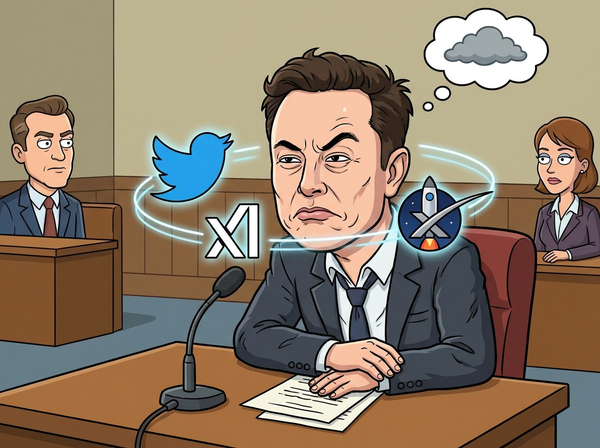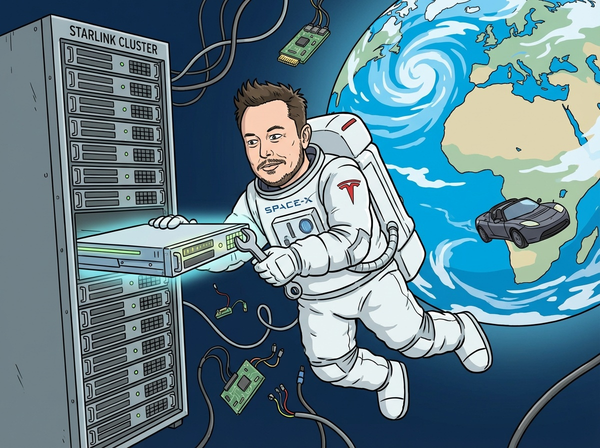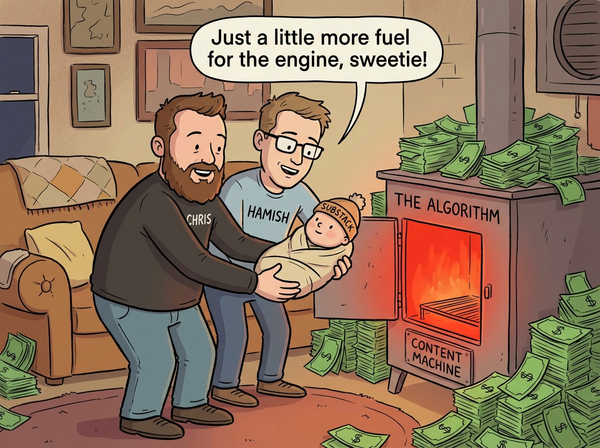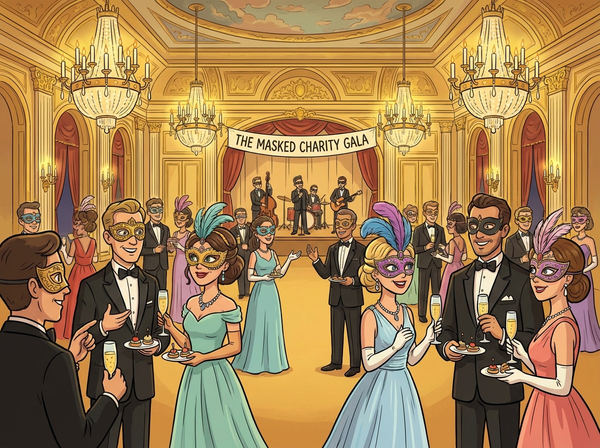Book Review: Wild Faith
Talia Lavin's delve into the Evangelical Christian ecosystem is devastating and a must-read.
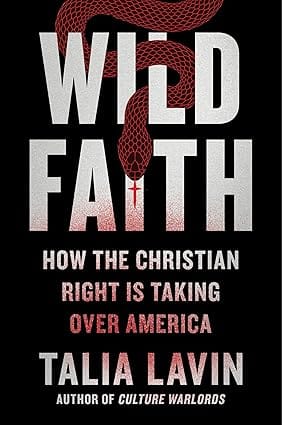
I am going to admit that this sat in my "to read" pile for a long time. I pre-ordered it when I heard about it. I have been a follower and fan of the author, Talia Levin, and when she announced that it was being released, I mashed that buy-now button.
It is important to lay out where I come from, as this is a book that is primarily about the Christian Right and the fuckery they get up to, I definitely do not come from this world.
My family were not church goers. My father was decidedly a non-believer, and my mother was raised Presbyterian, but when they moved from Erie Pennsylvania to the SF Bay Area they let their attendance drop.
I spent a week in Summer Bible School when I was like 5 with the Mormon girl who lived across the street, and my recollection was that was all nonsense. Thus, I have always been at a minimum a skeptic, and more of an active atheist.
What I am saying is that I have no history in this space besides an outsider.
On to the review:
The book is structured into two sections, and Lavin provides a wealth of citations of her sources and her interviews.
Part 1: This is how you win the spirit war
It lays out the broad actions and activities by the power centers, and how they manipulated the politics to shift the mores and laws to benefit their world views.
This paved the way for and supercharged the assault on the family that is the second part.
Frankly, I knew most of the players, and if you've read the outstanding Rick Perlstein's "The Invisible Bridge: The Fall of Nixon and the Rise of Reagan" most of these characters are woven into that narrative as the religious Right was coopted into Republican mainstream.
That said, one of the clips I made was in a section was in a section on the "Day Care Panic" a phenomenon that began in the late 1980's and bled into the middle of the 1990's and kept alive in living rooms across America by Oprah. A "Satanic Panic" where there was a cabal of Satanists running day care centers, that led to the arrest and conviction of many people for made up crimes. A pre-crime echo if you will of the Comet Pizza case and Q.
The day care panic was driven by a trans-partisan spectrum of individuals: overzealous prosecutors seeking to advance their careers by appearing tough on crime against children; psychologists convinced that they had found a new key to the human psyche; and feminists and victims’ rights advocates who seemed, finally, to have reached a moment in which sexual abuse was taken seriously. Meanwhile, the Christian Right, predisposed to see Satan’s work in the world in general and particularly in public child care, which allowed women to work outside their homes, was glad to fan the flames. In We Believe the Children: A Moral Panic in the 1980s, Richard Beck explained that the rising influence of evangelical Christians, then at a new zenith of political power under the presidency of Ronald Reagan, had helped push the narrative and make it politically viable. “Fifteen years of grassroots organizing had turned evangelical organizations like Focus on the Family and Moral Majority into some of the most powerful political groups in the country and mobilized conservative Christians of many denominations around right-wing causes,” he wrote. “The threat of satanic cults had been a consuming preoccupation among evangelicals since the early 1970s.”
This seems to have strong echoes to today, the Epstein hullabaloo, and the professed concern about the children.
I encourage you to put a pin in this, because the second part of this book is wild.
My only other pull from the first section is this epic description of Steve Bannon:
Helmed by human yeast infection and slovenly right-wing ideologue Steve Bannon
Just perfect Talia!
On to part 2, where I will have a LOT more to say.
Part II: Family
I am not going to lie, this section was difficult to read. I do foll0w enough (mostly women) who have escaped the clutches of Evangelical Fundamentalism that I am not surprised by much of this, but, the details, and the recountings from those who have made a break is truly tough to read.
Here, Talia, herself a NY Jew realized that she needed primary sources, so she used her presence on Twitter to solicit input and inside views, and she does a yeoman's job of narrating a story.
The tale begins with the Brown v. Board of Education, and the desegregation of schools. This led to a huge flight from public education, into "Christian Academies" throughout the south and far further north as well. If you saw (and see today) a school that had "Christian" in the name, in the 60's and 70's you could be assured that no Blacks were allowed.
In one 1958 edition of the Defenders’ newsletter, Defenders’ News and Views, the broader political aim was made particularly stark—envisioning a future in which integration led to the complete dissolution of public schools.“Perhaps the day may come when private schools will replace all public schools,” wrote an anonymous editorialist. “Let us never surrender our priceless heritage of freedom and independence.” The “priceless heritage of freedom” in question was segregation, and in Prince Edward County the entire public school system was closed down, leaving legions of Black children bereft of any educational opportunities at all.
Yup, pretty much.
Then that migrated to the concept of religious liberty:
In the slow unraveling of the Jim Crow legal regime in the US South, a new phrase, now an indelible part of the lexicon of American politics, was born (or born again), and achieved ubiquity: religious liberty. It meant: If we nail a cross over the door and say our school is private, we’re allowed to exclude Black people. And keep our tax exemption.
We are hearing a lot about Religious Liberty, particularly from the SCOTUS, and it traces its roots back to this arc.
Scary shit indeed.
But when Talia gets into the stories of the children, it turns truly heart wrenching.
From Sarah (not her real name) is this accounting:
Spoons were the least of it. “In our house the whip hung on a nail in the pantry and was used often. We’d be told to go to our rooms, strip completely naked, and bring the whip to our parents in the living room,” said Anna. “They stuck to the forty-lash rule given in the Bible, but that was for each whipping. We might receive several at the same time, so eighty or one hundred and twenty lashes were not unheard of. My first memory at three years of age was receiving one of these whippings after having my clothes and underwear taken off. We would get it from head to toe, front and back. Neither me nor my siblings have a relationship with our parents today. Where they really belong is jail and then straight to Hell.”
Indeed, the "position" was often unclothed, and the whippings were often by their fathers. Any wonder why there are so many Christian men who are arrested for kiddie porn?
Of course, there was an ecosystem of texts and leaders of this movement of training up a child, all names that you probably recognize:
Millions of children have been raised with these principles and this pain. At least three killings have been circumstantially linked to the parenting doctrines of the Pearls in particular: between 2006 and 2011, Sean Paddock, four years old; Lydia Schatz, seven; and Hana Grace-Rose Williams, thirteen, all died brutal deaths at the hands of parents who followed the teachings of the Pearls’ To Train Up a Child. Sean died of suffocation in North Carolina, wrapped too tightly in blankets as a punishment; Lydia died after being spanked for several hours without pausing in California; Hana, emaciated, was left naked outside in the cold under the guise of punishment in the chilly winter weather of Sedro-Woolley, Washington. The theology represented by Dobson, the Pearls, Tripp, and others is one of total obedience. It is vital, each of these authors says, to start early, utilizing violence as early as five months (per the Pearls) or fifteen months (per Dobson); to train often, consistently, and relentlessly; to extinguish undesired behaviors completely; to subject not just behavior but the will.
And most heartening of all is reading in the final chapter about how this early abuse led to huge psychological issues later in life.
I won't spoil that chapter, but indeed it is something that you want to turn away from, but it is worth reading.
Final Thoughts
I am horrified by what Talia's research revealed. As I mentioned, I was raised without church and religion being part of my life, so I had no idea about how awful this is, and how it has been intertwined into our politics and culture, and how toxic that is.
I highly recommend this brutal read.

